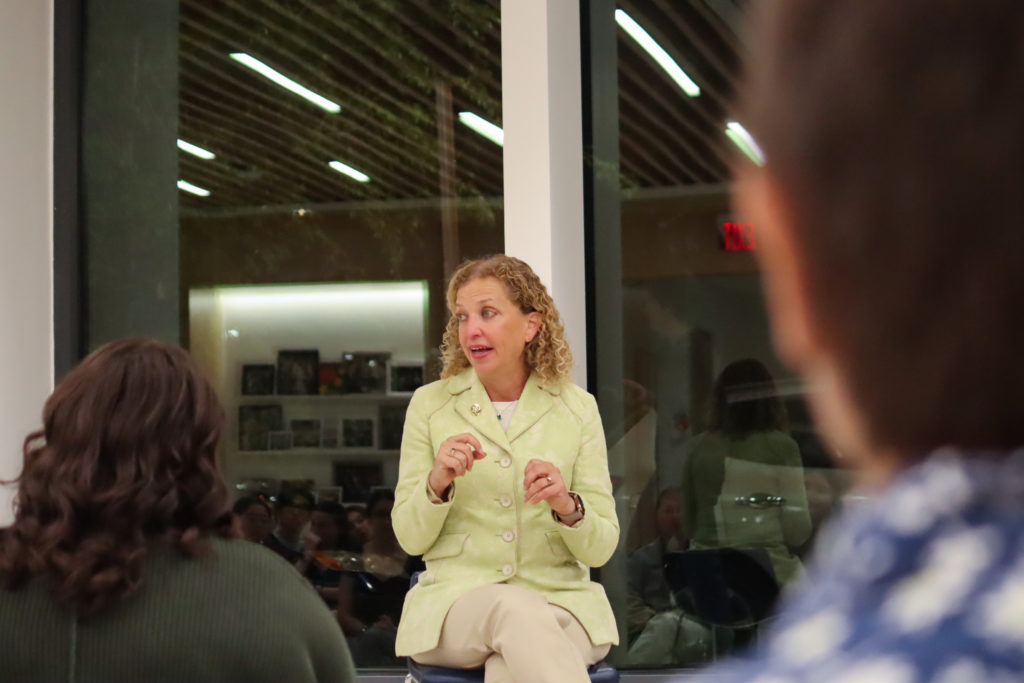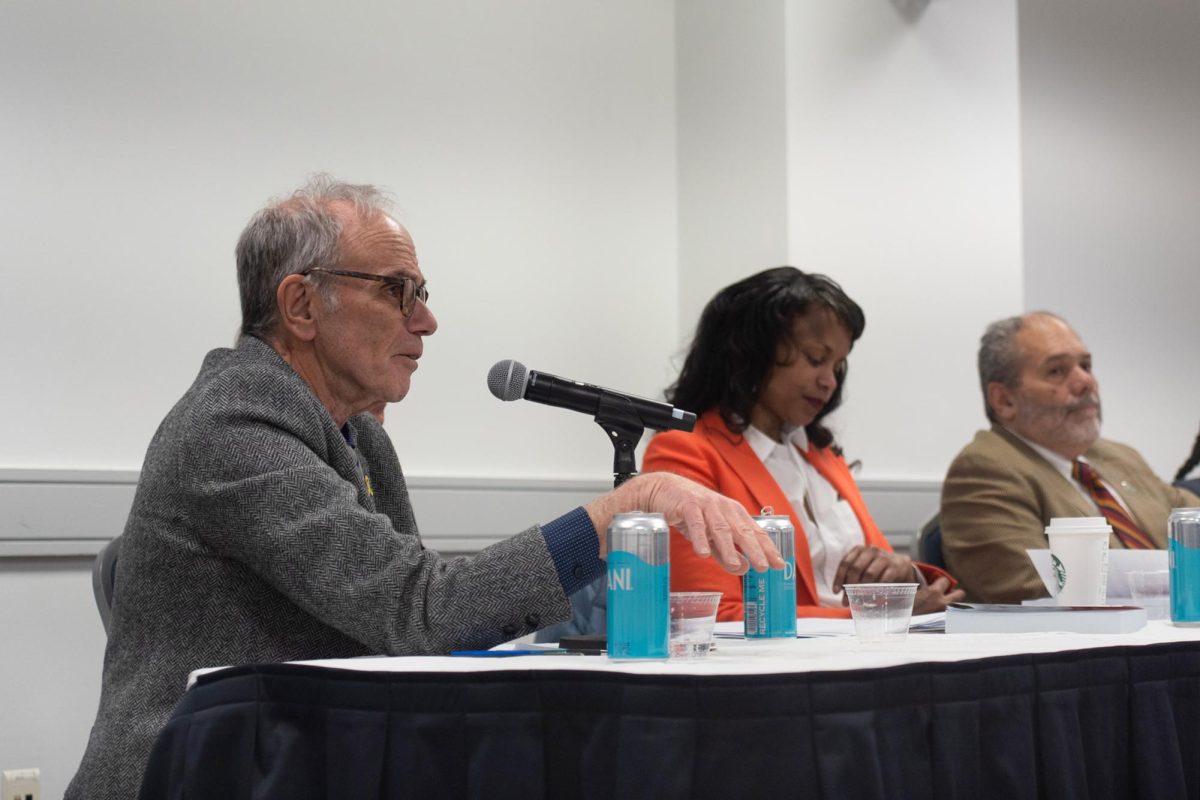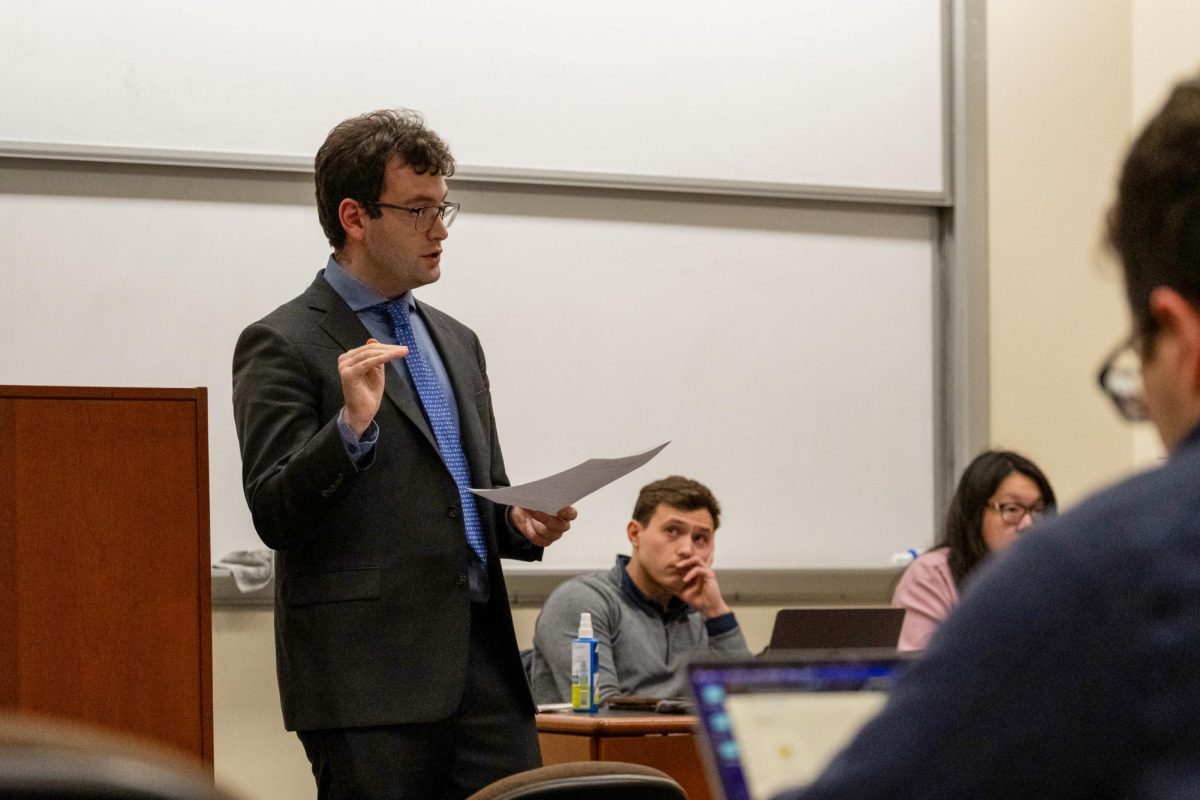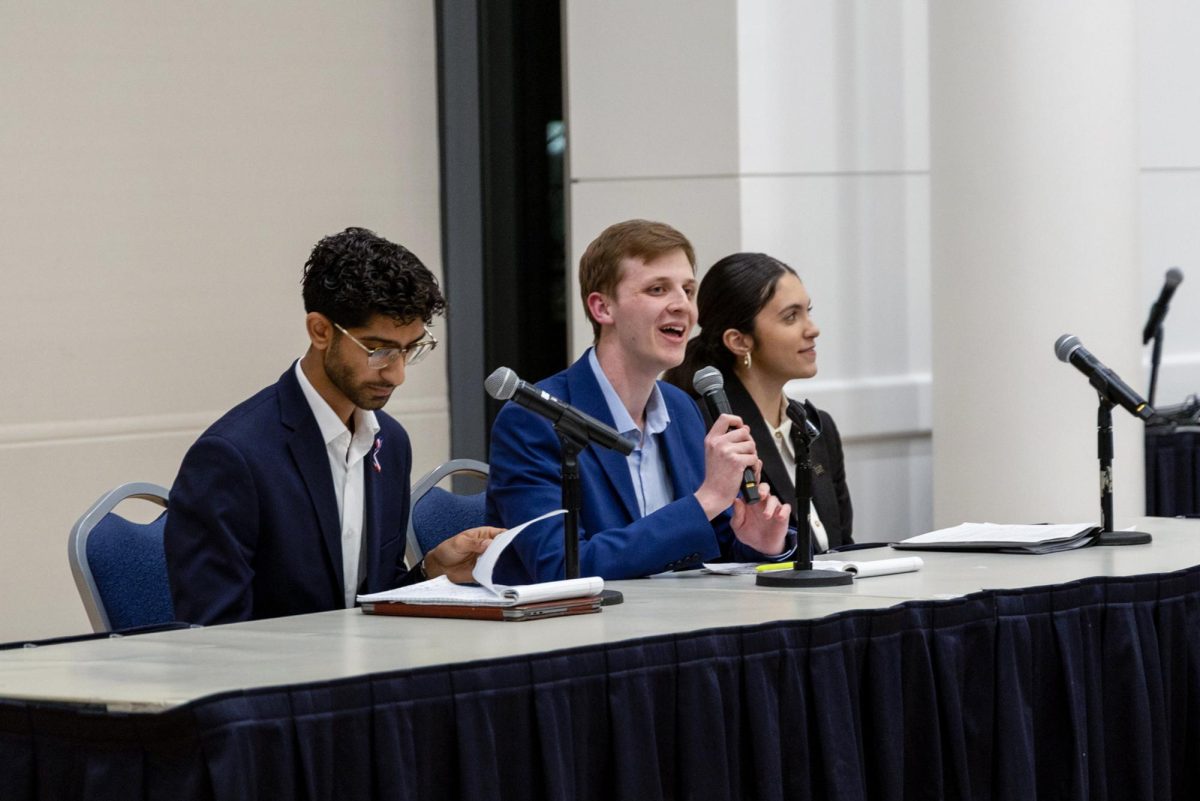A congresswoman discussed Jewish values, the national rise of antisemitism and youth engagement in politics at the GW Hillel building Wednesday.
Rep. Debbie Wasserman Schultz, D-FL, the first Jewish woman to represent Florida in Congress, said her Jewish upbringing instilled in her a “responsibility” to positively impact her community through public service. The event was hosted by GW Hillel, a Jewish student educational and social organization, and moderated by Adena Kirstein, the executive director of the organization.
Wasserman Schultz, who represents Florida’s 25th congressional district, said looking at policies through the lens of Jewish values like “tikkun olam,” which she defined as the responsibility to “make a difference in the world” shaped her decision-making as a lawmaker. She said the need for public recognition of the historical persecution of Jewish people and their contributions to the “American success story” led her to introduce a resolution in 2006 to name May as Jewish American Heritage Month in the United States, which then-President George W. Bush adopted.
Every succeeding president since George W. Bush has made annual proclamations recognizing JAHM, according to the National Archives.
Wasserman Schultz said she is the “most proud” of being the first Jewish woman to represent Florida in the U.S. Congress and that she didn’t realize her election presented the milestone until her predecessor, former Rep. Peter Deutsch, D-FL, told her while she was running.
“It really gave me pause when I learned that because there is a sense of responsibilities that came with that distinction,” Wasserman Schultz said. “It heightens the responsibility I have held to what I have always done.”
Wasserman Schultz said her inspiration to pursue a career in national politics stems from political involvement in college as president of the University of Florida’s Student Senate. Florida voters elected Wasserman Schultz to the state’s House of Representatives in 1992 and the Florida Senate in 2000 prior to her election to the U.S. House of Representatives in 2004.
Wasserman Schultz also served as chairwoman of the Democratic National Committee from 2011 to 2016. She said she faced a higher level of scrutiny in the position than previous chairs who were male when asked about the double standards women face in politics.
“The things that I went through just in the normal course of running the DNC, the decisions I would make, I would get scrutinized or called out by the media or by other people who had say-so in the work that we were doing,” Wasserman Schultz said. “You know, they never questioned my male predecessors.”
As head of the DNC, Wasserman Schultz faced controversy for her statements in leaked emails written during the 2016 election primaries that favored then-presidential candidate Hillary Clinton over fellow Democratic candidate Sen. Bernie Sanders, I-VT, including one where she said Sanders would never become president. She stepped down from the role one day before the annual DNC convention in 2016 amid backlash from DNC insiders and Sanders supporters.
Wasserman Schultz said she is concerned about the rise in antisemitism across the country, especially in her home state of Florida. Florida had the fourth-highest number of antisemitic incidents across all 50 states in 2022, falling behind only New York, California and New Jersey, according to a report by the Anti-Defamation League Florida. The ADL recorded 269 total antisemitic incidents in Florida in 2022, a 42 percent increase from 2021 and an all-time high for the state.
Wasserman Shultz said social media companies’ failure to regulate antisemitic and racist speech allows antisemitism to spread like “wildfire” online and leads to increased instances of antisemitic and racist speech, harassment and attacks. She said social media companies avoid removing hateful content so they can profit from it.
“Social media companies are so indifferent,” Wasserman Schultz said. “They pretend to be more desirous of taking down the hate, but they make money off of it and they use their algorithms to promote it and advertisers make money from it.”
In 2022, the ADL recorded the highest number of documented antisemitic incidents, which include harassments, vandalisms and assaults, in the U.S. since the beginning of their data collection in 1979. The ADL defines antisemitic harassments as cases where one or more Jewish people were “harassed verbally or in writing,” vandalism as cases where property was damaged with “antisemitic intent or which had an antisemitic impact on Jews,” and assaults as cases where Jewish people were “targeted with physical violence accompanied by evidence of antisemitic animus.”
Wasserman Schultz, who became the youngest female Florida legislator in the state’s history when she was elected to the state’s House at age 26, said serving with colleagues old enough to be her parents and grandparents made her realize the need for the “energy” and “ideas” that come from the “lens of the younger generation.” She said as a young mother of three children, she sought to address drowning deaths among children by co-sponsoring the Virginia Graeme Baker Pool and Spa Safety Act, a law to prevent drowning among children by requiring pool drain covers designed to reduce body, hair and limb entrapment, because no one has ever “taken on” the issue.
She said that there has been progress made for youth representation in Congress, but that it’s important that more young people run for public office.
“Now it will be different, now you could run as a single young woman,” Wasserman Schultz said. “But it’s so important that younger people think about running because you just lose that perspective generationally.”











